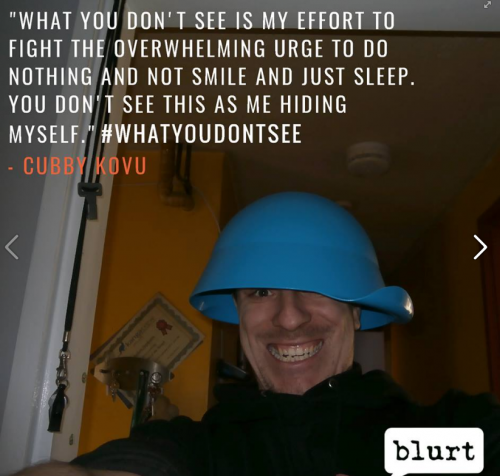#What_You_Don’t_See is the hashtag many social media users around the world are using on the occasion of the Depression Awareness Week. Twitter had abundant numbers of this hashtag; here are some of the tweets:
I hear this is ‘Depression Awareness Week’. Wish I’d known earlier. We need much greater understanding & awareness of mental health issues.
— Stephen Baker (@SBakerCX) April 22, 2016
“If you look in the mirror and don’t like what you see You can find out first hand what it’s like to be me.”
— Spiazzata (@chettabimba) April 22, 2016
Physical Illness?
Medical community cannot yet figure out if depression is a physical illness rooted in neuro chemistry,or a negative habit of thought that can be addressed by talking or behavioural therapies.
What is Depression?
What is depression anyway? The World Health Organization (WHO) states that “Depression is a common mental disorder, characterized by sadness, loss of interest or pleasure, feelings of guilt or low self-worth, disturbed sleep or appetite, feelings of tiredness, and poor concentration”.
It also mentions that “depression can be long-lasting or recurrent, substantially impairing an individual’s ability to function at work or school or cope with daily life. At its most severe, depression can lead to suicide. When mild, people can be treated without medicines but when depression is moderate or severe they may need medication and professional talking treatments.
“Depression is a disorder that can be reliably diagnosed and treated by non-specialists as part of primary health care. Specialist care is needed for a small proportion of individuals with complicated depression or those who do not respond to first-line treatments”.
I had a black dog, his name was depression
On April 2 2012, WHO posted a youtube video to mark World Mental Health Day, in collaboration with writer and illustrator Matthew Johnstone. The video tells the story of overcoming the “black dog of depression”. Many people around the world said that it helped them view depression from a different angle.
This was the description below the video:
At its worst, depression can be a frightening, debilitating condition. Millions of people around the world live with depression. Many of these individuals and their families are afraid to talk about their struggles, and don’t know where to turn for help. However, depression is largely preventable and treatable. Recognizing depression and seeking help is the first and most critical towards recovery.
Surprising Causes of Depression
According to Health.com, there are a number of surprising causes for depression:
Summer weather
Seasonal affective disorder (SAD) is most commonly associated with winter blues, and it afflicts about 5% of Americans.
But for less than 1% of those people, this form of depression strikes in the summer. Warm weather depression arises when the body experiences a “delay adjusting to new seasons,” says Alfred Lewy, MD, professor of psychiatry at Oregon Health and Science University, in Portland.
Instead of waking and enjoying dawn, the body has a hard time adjusting, he says, which could be due to imbalances in brain chemistry and the hormone melatonin.
Smoking
Smoking has long been linked with depression, though it’s a chicken-or-egg scenario: People who are depression-prone may be more likely to take up the habit.
However, nicotine is known to affect neurotransmitter activity in the brain, resulting in higher levels of dopamine and serotonin (which is also the mechanism of action for antidepressant drugs).
This may explain the addictive nature of the drug, and the mood swings that come with withdrawal, as well as why depression is associated with smoking cessation. Avoiding cigarettes—and staying smoke free—could help balance your brain chemicals.
Thyroid disease
When the thyroid, a butterfly-shaped gland in the neck, doesn’t produce enough thyroid hormone, it’s known as hypothyroidism, and depression is one of its symptoms.
This hormone is multifunctional, but one of its main tasks is to act as a neurotransmitter and regulate serotonin levels. If you experience new depression symptoms—particularly along with cold sensitivity, constipation, and fatigue—a thyroid test couldn’t hurt. Hypothyroidism is treatable with medication.
Blurt Foundation
Blurt Foundation, which is dedicated to helping those affected by depression, has come up with the #what you don’t see campaign.
Know someone with depression? Help him/her overcome it.
Follow us on our Twitter account @greenareaen















